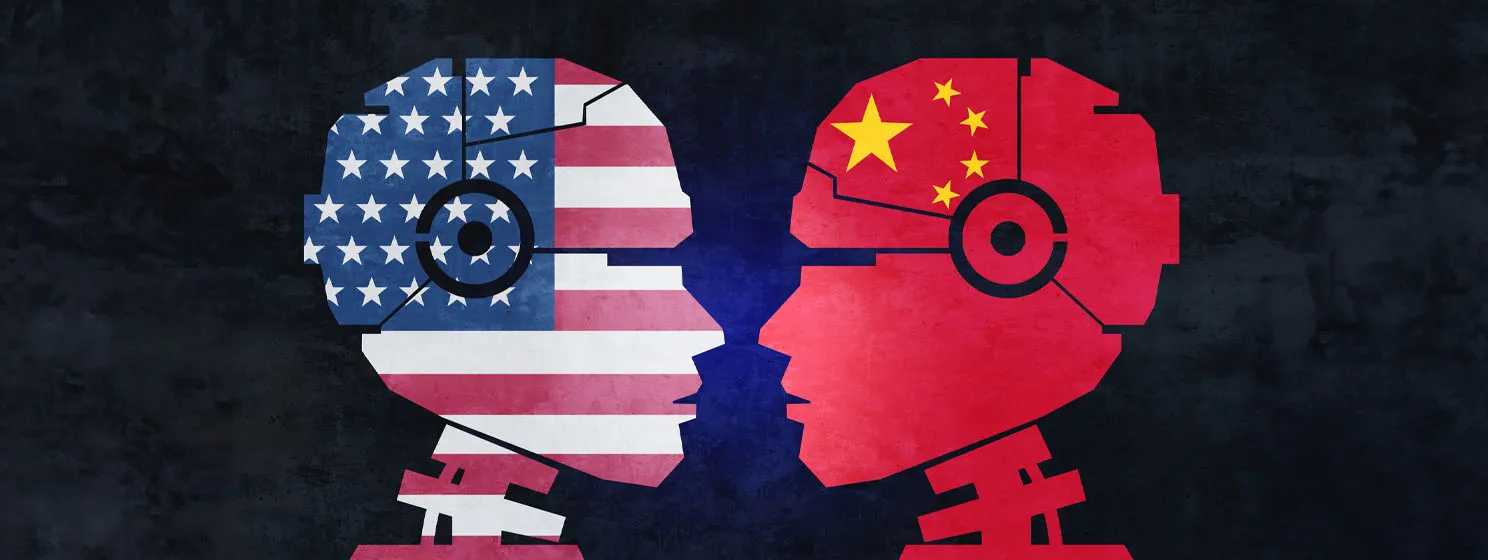|
Getting your Trinity Audio player ready...
|
Binance’s U.S.-based digital asset exchange has resumed U.S. dollar-based transactions while the dot-com mothership has been hit with an $81.5 billion—yes, with a ‘b’—damages claim by Nigeria’s government.
- Binance.US ends dollar-deprived drama
- Nigeria wants all the money Binance has, and it wants it now
- Gambaryan v. Nigeria gov’t war of words
- Binance loses bid to quash U.S. class action
- CZ dislikes memecoins but promotes memecoins
On February 19, Binance.US announced that “USD services are back,” meaning customers can both deposit from/withdraw to their bank accounts, buy tokens via bank transfer (ACH) and trade using a limited (for the moment) number of USD pairs, including BTC, ETH, SOL, DOGE and (naturally) Binance’s in-house BNB token.
Binance.US suspended USD deposits in June 2023 and became a fully ‘crypto-only’ exchange the following month. The unwanted transition followed a Securities and Exchange Commission (SEC) civil complaint against Binance.com, Binance.US and their founder, Changpeng ‘CZ’ Zhao. Among other charges, the SEC alleged that the accused had sold unregistered securities to the public and failed to restrict U.S. customers from accessing Binance.com.
The SEC suit remains active, but the agency’s new leadership sought and was granted a 60-day ‘pause’ of the proceedings last week. With former chair Gary Gensler gone, the new crypto-friendly SEC told the court that an “early resolution” of the suit appeared likely—despite many observers concluding that the SEC was poised for a slam-dunk victory given the overwhelming evidence of Binance’s guilt.
Legally speaking, Binance.US may not yet be completely in the clear but the dollar restart suggests it’s eager to test its new boundaries. The exchange has yet to reveal which U.S. banks agreed to handle its business, although the crypto-friendly fintech outfit Plaid appears to be acting as an intermediary.
Having survived a 19-month banishment to the ‘crypto-only’ desert, Binance.US interim CEO Norman Reed claimed to be “thrilled to restore fiat rails as we accelerate with increased momentum in the new year.”
Binance CEO Richard Teng—who replaced CZ in November 2023 following the company’s $4.3 billion legal settlement with U.S. authorities and CZ’s four-month incarceration in federal prison—said this week that “we have a fresh reset and a fresh restart” in America thanks to Donald Trump winning the White House and the resulting 180° switch in how all things blockchain are perceived in Washington. However, Teng qualified that he was waiting to see how much ‘regulatory clarity’—aka dismantling of guardrails—was coming before making any major decisions.
You owe us eleventy-kajillion dollars
Binance executive Tigran Gambaryan may have been freed from his Nigerian prison cell, but the country isn’t done messing with the company. On February 19, Reuters reported that Nigeria’s Federal Inland Revenue Service (FIRS) has sued Binance for $81.5 billion, of which $79.5 billion represents alleged financial damages to the economy and the other $2 billion is for back taxes owed.
The suit accuses Binance of evading its local tax obligations, violating foreign exchange rules and contributing to the devaluation of the local naira currency. While Binance has never registered in Nigeria, the government nonetheless claims that its economic activities in the country were sufficiently significant for it to be subject to corporate income tax.
Nigeria’s slap fight with Binance began a year ago when the government accused the exchange of perpetrating a “sophisticated heist” by allowing its customers to manipulate the value of the naira via stablecoin-based forex trades. The tiff found a new gear when Nigeria arrested two Binance execs, including the aforementioned Gambaryan (a U.S. citizen), who’d come to Nigeria to try and negotiate some resolution.
Gambaryan and regional manager Nadeem Anjarwalla (a British national) were charged with tax fraud and money laundering. After Anjarwalla skipped bail and fled the country, Gambaryan spent eight months in custody. His release was secured last October following negotiations with U.S. federal representatives.
While the tax fraud charges were later dropped, Nigeria’s Economic and Financial Crimes Commission (EFCC) revived its money laundering charges against Binance and Anjarwalla last November. A hearing in the case is scheduled for this coming Monday (24).
Shots fired!
Following a suitable interlude, Gambaryan has begun giving interviews to Western media, telling NPR that his first trip to Nigeria to discuss the forex manipulation allegations resulted in local officials demanding “user records for every single Nigerian user” and telling him that “until that’s done, you can’t leave.”
Initially confined to a ‘safe house’ in Nigeria’s capital, the situation changed dramatically after Anjarwalla did a runner. Gambaryan was transferred to Kuje prison, where he contracted malaria and then pneumonia while also developing crippling back issues.
Gambaryan got more graphic in an interview with Wired, detailing his denial of medical care and illustrating the harsh conditions inside Kuje, where Islamic State militants are held. Gambaryan also claims he was constantly pestered for bribes by prison guards, who apparently believed anyone associated with Binance was made of money.
On February 14, Nigeria’s Minister of Information and National Orientation, Mohammed Idris, issued a lengthy tweet urging people to “disregard falsehoods being peddled by Tigran Gambaryan against Nigerian government officials.”
Idris took issue with “the outrageous allegations, misinformation, and defamatory statements being disseminated” by Gambaryan. Idris said he and the government “categorically deny the retaliatory claims made by Mr. Gambaryan against Nigerian officials involved in his case, and we urge the public to disregard these false accusations in their entirety.”
Idris claims Gambaryan was detained because “investigators were frustrated by the tactics deployed by Gambaryan and his team.” Idris said Nigeria’s government “rejected Binance’s offer of a $5 million down payment in exchange for Mr. Gambaryan’s freedom, in favour of a more beneficial settlement with the American government.”It’s unclear what this ‘more beneficial settlement’ consisted of, but the ‘down payment’ bit may refer to claims made by CEO Teng, who last May said the Nigerian government had offered to drop all charges if the company paid a substantial bribe. The New York Times later quoted unidentified sources saying the amount of this ‘request’ was $150 million.
Idris closed his tweet by saying Gambaryan’s claims were “not only unsubstantiated but also lack credibility, given his apparent motive to discredit and intimidate those who ensured he faced justice.” Idris urged the public to “exercise caution and not be swayed by Mr. Gambaryan’s unfounded and malicious claims.”
No Supreme Court reprieve and still no HQ
Back in the States, last month, the U.S. Supreme Court denied Binance’s appeal of a lower court ruling that allowed a class action suit to proceed. The class action was brought by some U.S-based customers who accused the exchange of selling unregistered securities in the form of Ethereum-based tokens launched during the initial coin offering frenzy of 2017-18.
The Supreme Court doesn’t offer explanations when it rejects hearing appeals, but Binance previously claimed that U.S. courts lacked jurisdiction, since the company officially had no presence in the country at the time. The lower court ruled that, since the token purchases were finalized on Amazon (NASDAQ: AMZN) servers based in the U.S., the complainants were on solid ground with regard to jurisdictional issues.
Binance famously lacks a corporate headquarters, a legacy of the ‘bad old days’ when the company found it legally advantageous to claim it wasn’t based anywhere and thus no jurisdiction had any right to claim injury (or know where to serve legal papers).
Last April, CEO Teng said the company was “speaking to a few jurisdictions” about possibly putting down roots. However, the matter remained unresolved as of December, when Teng told DL News that “we will let you know” when Binance makes a decision. However, Teng hinted that the United Arab Emirates was a “very attractive” candidate.
This week, Teng was still hedging his bets, saying several possible locales were under “careful consideration” and hopes were high of Binance actually pulling that trigger “very soon.”
Memecoins go to the dogs
Binance’s latest global user survey showed that 16.1% of respondents held some form of memecoin, higher than runner-up BTC (14.4%) or third-place finisher BNB (14.2%). Perhaps not surprisingly, the leading motivation for why Binance users are “drawn to the crypto space” was “rapid appreciation.” Do tell.
Last November, CZ tweeted that he was “not against memes, but meme coins are getting ‘a little’ weird now.” Earlier this month, CZ posted a much longer tweet in which he attempted to explain how a memecoin called Test (TST) somehow got listed on Binance after he used the token in a BNB Chain tutorial video, leading to a massive (and incredibly brief) spike in fiat value before the inevitable crash.
On February 6, CZ tweeted an explainer about the TST token, which was created for the express purpose of a video demonstrating how to launch tokens on the four.meme platform. While the name of the token appeared only briefly in the video, CZ said the result was that “the Chinese community [key opinion leaders] starts to trade this token and promote this token.”
The TST token was indeed listed on Binance, despite CZ’s earlier insistence that TST was “not an official token by the BNB Chain team, or anyone.” On February 10, CZ’s follow-up tweet said he didn’t know “for sure” why Binance listed the token, claiming that he is “entirely NOT involved in their listing process.”
As part of his settlement with U.S. authorities, CZ was required to step back from any operational role in Binance, although he wasn’t required to divest his majority control of the company. And since the mother of CZ’s children—Binance co-founder Yi He—is still very much involved in the company’s day-to-day operations, it seems illogical to think CZ is entirely ignorant of what the exchange is up to.
This isn’t the only memecoin fiasco that CZ has been linked to recently. On February 12, CZ responded to an X user asking if he had a dog and what its name was. “How does this work? I share my dog’s name and picture, and then people create memecoins?”
The next day, CZ tweeted a touching story about the dog he’d adopted, which he named Broccoli. CZ insisted that he was “NOT issuing a meme coin myself. It’s up to the community to do that (or not).” CZ added that the BNB Foundation “may provide rewards for the top memes on the BNB chain.”
Predictably, the market was instantly flooded with nearly 1,000 Broccoli-themed memecoins, most of which quickly rose and just as quickly fell in fiat value. But not before some enterprising individual allegedly earned nearly $28 million by buying large quantities of nearly every single one of these utility-free tokens and then dumping hard before they crashed. Since memecoins are a zero-sum investment game, many ‘investors’ didn’t fare nearly as well.
But hey, don’t blame CZ (or his dog). He’s just tweeting stuff, remember? Even if he’s a crypto celebrity who makes a vague promise of ‘interacting’ with the issuers, and even if doing so seems ‘a little weird.’ Given this week’s still-unfolding shenanigans with Argentina’s president Javier Milei and the memecoin rug pull he promoted but now claims to have had nothing to do with, the less gasoline public figures can pour on this crypto casino fire, the better.
Watch: Bringing the Metanet to life with Teranode

 05-04-2025
05-04-2025 





